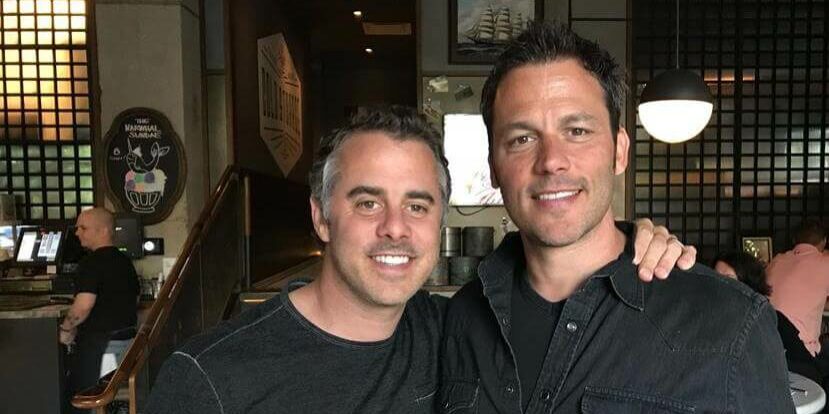I walked off the stage feeling great. I’d delivered a solid keynote that was met with appreciation and positive feedback from the meeting planner.
I made my way to the Orlando airport and opened my laptop. That’s when I found out there was at least one person in the audience who wasn’t feeling so great.
“Sorry to burst your bubble, but your speech had zero substance, your moves are rehearsed and you come over as a total fraud. Please consider another career, you were a total waste of my time.”
I was floored. I’ve always considered feedback to be an incredible gift, and I love the real-time feedback loop that comes with delivering live events. But this was something different. It was also just the opening paragraph. The rest of it was personal, and I immediately started reacting to what I was reading.
My first move was to audit what happened to elicit such an intense, negative reaction. I walked through the hour frame by frame, considering my content, delivery and arbitrarily identifying moments where I clearly must have missed the mark.
Then my phone rang. It was Lynn, my business manager, was had also received the email. She wanted to know what the hell just happened. As we talked through it, she naturally defended our position. She quickly concluded that these comments were from an outlier and really weren’t intended to provide any meaningful insight. The intent was to insult. She suggested we simply ignore it and move on. I wasn’t so inclined to let us off the hook.
I was determined to figure out how we missed the mark. I wanted to unpack our approach to this event and determine what we could have done differently. I wanted to compare us to others, and I thought it might be time to bring in outside help to lend additional support and perspective. I was thinking through this out loud during our discussion. Lynn stopped me.
“Ryan, it was a personal attack coming from one person. Perhaps we shouldn’t give that perspective so much meaning and move on.”
She was right. I was overreacting and giving that voice of criticism way too much power. Now, when I look back, I can acknowledge that I was way too easily moved off my spot. That’s a rookie move, and it burned valuable time, energy, resources and mind space. Amateurs react. Professionals anticipate and respond with intention.
One way to stop reacting and start anticipating? Develop routines and rituals to reinforce your state of mind, emotional strength and intent. You get to decide how you show up, and how you respond to others.
VIDEO: Decide How You Show Up
If you are in the practice of putting your ideas out into the universe — if you seek to challenge the status quo and change behavior — you should anticipate criticism. It’s coming. While I still believe feedback is an incredible gift, I’m also very careful to consider both the source and the meaning I assign the message. That isn’t arbitrary. It’s my choice.
When it comes to feedback, it’s not the critic who counts. Most of the time, criticism has nothing to do with you or me.
“What you think of me has nothing to do with me.” ~Dr. Wayne Dyer
That powerful perspective helps me categorize criticism and feedback. I don’t ignore it. But it’s not useful to take it personally. That understanding helps minimize any needless suffering over the opinion of others. But I’ll be the first to acknowledge that mastering this agreement takes practice.
How to Evaluate Feedback
Since then, I’ve developed a system to categorize constructive criticism, advice and input that helps me determine the feedback that I can use.
- Consider quantitative and qualitative feedback. We love when we receive feedback evaluations from the people who attend events where we speak. The feedback included a qualitative rating of my session (4.7 out of 5) and comments written in by attendees. Both are useful, but the 4.7 and invitation by the planning committee to return next year provides context on the overall impact of the session.
- Go to the tape. We spend hours watching “game film” and looking for opportunities to improve both my content and delivery. While I recognize that this is an advantage unique to my industry, I encourage you to apply the concept where you can. Preparing for a sales pitch? Asking for a raise? Requesting more internal resources? A little recorded practice can help you make serious progress toward getting the results you want. There’s a reason any decent golf instructor uses video to help students improve their swing. It works!
- Work with experts. When I hit a plateau, it’s usually because I’ve relaxed on my commitment to learning. My path to accelerate learning is to enlist the services of outside experts. Training properly dramatically cuts down the time to improved performance and twice a year we review our content, curriculum and core strategy with expert coaches to ensure we are moving in the right direction. It’s an expensive, time-consuming process that helps us blow up what isn’t working and grow the business much faster!
- Cultivate perspective. It’s incredibly important to separate your identity from your outcomes and to give yourself plenty of credit for the effort. Over time, I’ve come to understand that I am not a “fraud” or a 4.7. I am just Ryan and that is more than enough.
Fear of criticism can be a deterrent if we give the critic power. Don’t let fear hold you back. After all, the power comes through the meaning we assign the criticism. Perhaps a more powerful perspective is to relish in the notion that what you said, did or delivered resonated enough to evoke any response at all.
It’s never the critic who counts. Don’t let anyone else’s opinion move you off your spot. Keep going and be grateful you are in the arena!










